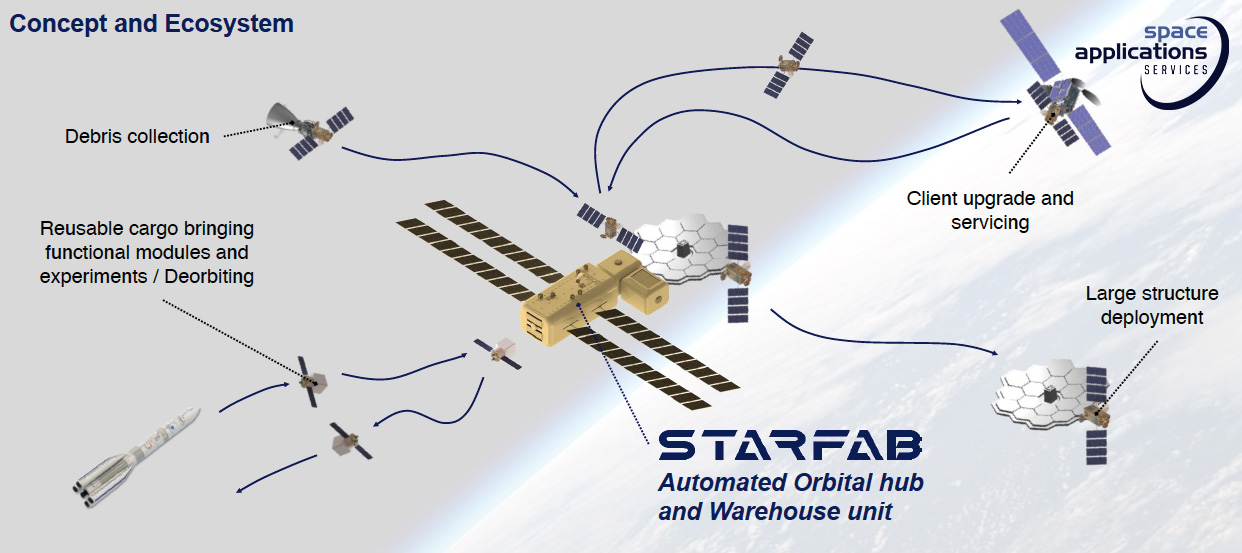As the space sector evolves towards a new paradigm, known as "New Space," it opens the door to new opportunities for exploitation. There is a growing need to develop a sustainable orbital ecosystem to mitigate the production of space debris and to foster new scientific and commercial applications. The current model, where satellites have limited lifespans, must be reimagined to allow for the assembly, reuse, repair, and even upgrading of spacecraft in orbit.
-
A Fully Automated Space Warehouse
With this objective in mind, the European Union, under the Horizon Europe program, has entrusted Space Applications Services with leading a consortium to design the first fully automated space warehouse. Named “STARFAB,” this warehouse will be capable of performing various operations such as assembly, refueling, updating, and diagnosing satellites and other elements of future space infrastructures. A prototype is currently under development and is expected to be unveiled in 2026.
STARFAB is a novel and multifunctional orbital facility equipped with automated robotic systems and a central control system to coordinate operations. For instance, in-space servicers can dock with STARFAB and get parts or payloads replaced by robotic arms. “But the possibilities don’t stop there,” explains Mathieu Deremetz, project coordinator. “STARFAB could also enable the assembly of advanced and more complex structures that are today reaching the limit of being launch from Earth, such as very large space facilities or telescopes.”
Space Applications Services is specifically responsible for coordinating the project, designing robotic and electronic components of STARFAB, drawing on our expertise and existing technologies such as HOTDOCK, the MOSAR’s walking robot arm and the MIRROR’s multi-arm robot.
New Space: The Dawn of a Sustainable Space Economy
In recent years, access to space, particularly certain orbital regions, has seen significant growth, largely due to a decrease in aerospace industry costs, exemplified by the development of reusable private launchers like SpaceX’s Falcon rockets. Technological advancements and closer collaboration between space agencies and the private sector now pave the way for large-scale space exploitation, but also create the need for new logistics to manage satellites, crewed spacecraft, and space structures. STARFAB aims to meet this need by serving as the multifunctional backbone of a space ecosystem.
For more information, visit https://horizon-starfab.space.
Contact: starfab@spaceapplications.com
July 3, 2024
STARFAB is co-funded by the European Union Horizon Europe Programme, under grant number 101135507.
